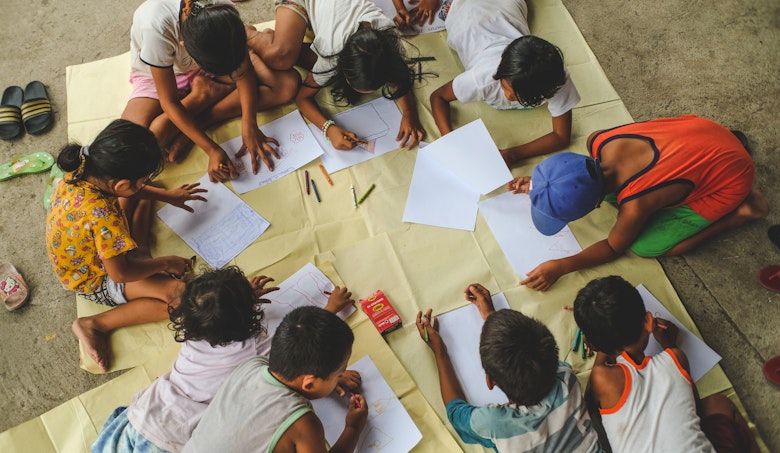Strengthening the Community-based Protection Systems to Eliminate Worst Forms of Child Labour (WFCL) in Visayas Region
Worst Forms of Child Labour (WFCL) is a serious and prevailing issue in the Philippines that is caused by a range of socio-economic factors, including limited employment opportunities for families, poverty, limited access to education (particularly as a result of the COVID-19 pandemic), social norms (in some families, children are obliged to work to support their families) and weak enforcement of laws related to child labour (e.g., R.A. 7610, R.A. 9231). Victims of WFCL are unlikely to report the abuse they experienced since many do not perceive themselves as victims, distrust the justice system, and fear being subjected to retaliation, stigma, and long-term placement in government facilities. As a response, Terre des Hommes Netherlands in the Philippines, in partnership with Bidlisiw Foundation and Children’s Legal Bureau, and with funding support from the European Union, is implementing the project entitled, Strengthening the Community-based Protection Systems to Eliminate Worst Forms of Child Labour (WFCL) in Visayas Region which aims to support local government agencies, service providers and other relevant stakeholders in developing and implementing a comprehensive child-centred plan to protect children from WFCL, including sexual exploitation. The project will also capacitate local actors to monitor, document, report, and denounce violations of children's rights.
Sunshine Kristia Cupo
Programme Manager
Background
Despite the ban on the employment of children under 15 years old, WFCL, including the sexual exploitation of children (SEC), is still among the Philippines’ most urgent problems, with over 800,000 children engaged in hazardous labour across the country (Philippines Statistics Authority, 2021). Of the 17 regions in the Philippines, Western Visayas and Central Visayas are ranked among the highest in terms of child labour (CL) incidence. In the province of Iloilo in Western Visayas, there was an increase of 23% in the total profiled child labourers and CL cases from 2019 (4,204) to 2021 (5,404). On the other hand, a total of 6,681 child labour cases were identified in Negros Oriental in 2021, making it the province in the Central Visayas region with the highest number of child labourers profiled.
According to national reports, the economic crisis brought about by the COVID-19 pandemic had a detrimental impact on household incomes and without support, many have resorted to child labour, impacting children’s access to education, and contributing to their becoming victims of WFCL. Children from poor communities struggled to access online education due to lack of resources, further fuelling the risk of exploitation. Children, particularly girls, going into domestic labour also faced an increased risk of trafficking, sexual abuse and exploitation (US Embassy Manila, 2021).
The Philippines remains as one of the global hubs for online child sexual exploitation (OCSE), which continues to be a highly profitable and growing sector due to increased access to Internet connectivity (US Department of Labor, 2020). The lack of concrete, coordinated, and collaborative mechanisms for WFCL monitoring, protection, and response, especially at the local level, significantly contributes to the exacerbation of the issue. In addition, through consultations with partner civil society organisations (CSOs) and community-based organisations (CBOs), it was identified that local actors need further technical support to enable them to identify WFCL cases, understand relevant legislation and engage the private sector.
Goals
|
To eliminate worst forms of child labour (WFCL) in Visayas Region using a multi-stakeholder approach to enhance the level of protection provided to victims and at-risk children and strengthen the response of regional and local institutions. |
Approach
Our interventions and activities considers many aspects of the community and the best interest of children.
Our partners in the Philippines
Together with experienced partners we are working towards a world without child exploitation, where young people can feel safe today and better about tomorrow. Join our fight.

